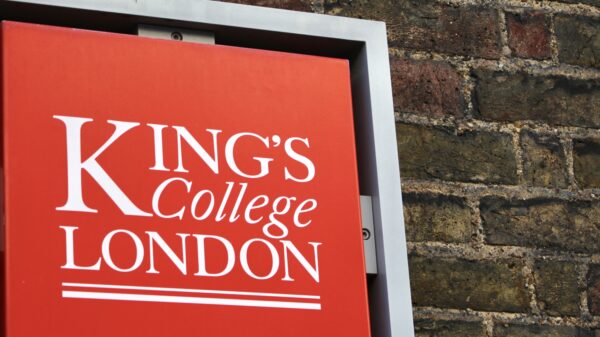Multiple KCL students from East Asian backgrounds have experienced racism and xenophobia due to the coronavirus. This behaviour is damaging, irrational, and unacceptable.Â
This past December, an outbreak of a novel Coronavirus – now referred to by the WHO as COVID-19 – began in the city of Wuhan, China, sparking international concern as recent travellers to the city were diagnosed with the disease in locations around the world. While the vast majority of current cases are in China, the infection is now spreading to other parts of the world, including the United Kingdom, with an infected patients recently having been moved to St. Thomas’ Hospital adjacent to KCL’s Guy’s Campus.

An excerpt from an email sent to students regarding COVID-19.
KCL officials have been sending email updates to students over the past several months, urging caution, but not panic. Similarly, while the UK’s Chief Medical Officers have raised their official public risk evaluation from low to moderate, they maintain that ‘the risk to individuals remains low’; their advice remains that primarily those who have recently travelled to and from areas of risk should be on their guard. Despite this, some KCL students who have not travelled to such areas of risk but whose families stem from international, primarily Eastern Asian backgrounds, have suffered from racially motivated intolerance from members of the public.
Ophelia Ho, a European Politics student at King’s, ‘feels like it’s a bad time to even LOOK East Asian, let alone be Chinese right now’. She has had two recent experiences she links to the COVID-19 scare. Exiting a railway station, she and her boyfriend ran into ‘a group of guys, probably my own age. A few of them were like, “which one of you has Corona, thenâ€, and saying things like “don’t cough on usâ€.’ Sitting down in a tube station, people moved away from her, with one man coughing and mumbling ‘bat soup’; a reference to a viral video of a woman eating a bat, which, despite being filmed in 2016 in Micronesia, led to misinformation regarding the virus.
‘It made me feel unwelcome in a country I was born and raised in,’ says Ophelia. ‘Everything from xenophobic media coverage to how Chinese people are generally perceived feels like the West is becoming increasingly intolerant towards people like me, and it gives me anxiety whilst I’m out and about, to think that I’m being shunned out of British society when Britishness has been engrained into how I’ve been brought up. I have never even been to China.’
Ophelia is not alone. An anonymous student says ‘I had a man tell at me when I was walking home at night, and a group of kids on the tube charged at my friends and I and told us to go back to China because we all had the virus.’ Regarding the former incident, ‘I was shocked and a little scared because I was alone late at night and it could’ve escalated.’ Another anonymous student says they were at a railway station when a drunk man approached them, saying ‘Hi, how’s your day, can I borrow your fucking Wuhan mask?’
The observation of a noted public health risk is extremely important. In the case of COVID-19, however, this necessity has somehow been misconstrued by some as an excuse to ostracise those who appear East Asian, relegating them to a separate social group of potential virus carriers. Whether such behaviour stems entirely from personal fears of virus contraction, ignorance, or else deeply engrained racist views held by some, it is in no way productive. Such actions only lead to more fear, not only on the part of those who are discriminated against, but also within the general public; the worst thing for what is already a public health issue. Rather than turning their attention towards those who some may believe to be carriers, people should be informing themselves as to how to prevent further infection. COVID-19 is not the fault of those who look dissimilar to us. It is a disease which does not discriminate, and likewise, baseless discrimination on our part will do nothing to stop its spread.
Previously Editor-in-Chief of Roar News. Best Interview, SPANC 2022. Classics with English BA student, graduating Summer 2022. Perpetually caffeinated.













